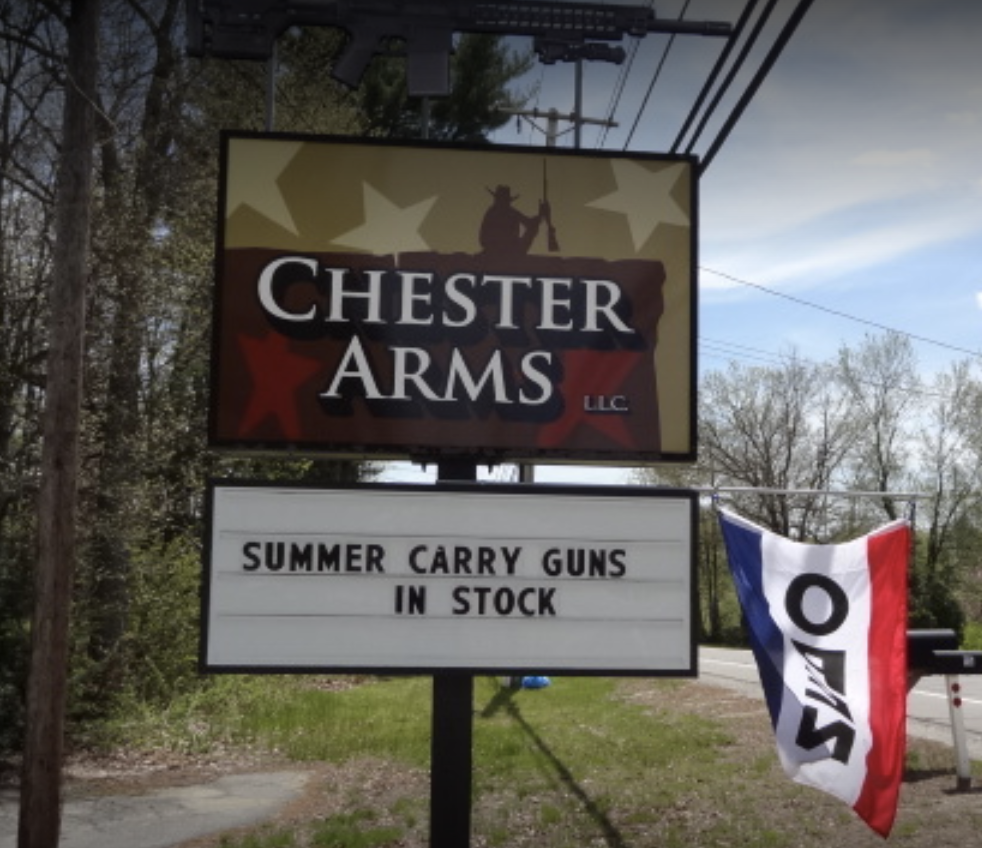Lawyer for Manchester Cops Wants Gun Store Lawsuit Revived

A jury needs to decide if the New Hampshire Department of Safety and the owners of the Derry gun store ignored red flags when Ian MacPherson bought the gun he would use to shoot two Manchester police officers in 2016, according to attorney Mark Morrissette.
“My clients need due process. They were shot by someone who shouldn’t have had a weapon,” Morrissette said Tuesday as he presented his arguments before the New Hampshire Supreme Court.
Morrissette wants the High Court to overturn last year’s Superior Court ruling that threw out the lawsuit brought by Ryan Hardy and Matthew O’Connor, the two Manchester police officers MacPherson shot with the .40 caliber Smith and Wesson handgun he bought at Chester Arms.
According to Morrissette, both the store and the New Hampshire Department of Safety are at fault in the shooting for ignoring obvious signs that MacPherson should not be sold a gun.
MacPherson was found not guilty by reason of insanity in the shooting and is currently being held by the state for psychiatric care, according to Morrissette. When he went into Chester Arms to buy the gun, he exhibited such strange and alarming behavior that customers left the store to get their own weapons, and other customers called police because they were scared of him, Morrissette said.
“This was not a usual situation,” Morrissette said.
Sean List, the attorney for Chester Arms, said the store cannot be held liable for the sale. Store employees followed the law and relied on the Department of Safety’s Gun Line to clear the sale. MacPherson’s behavior on the day he first tried to buy the gun in March of 2016 may have been odd, but not a legal disqualification from owning a handgun, List said.
“There was no indication the guy was dangerous. Quirky, maybe, but not dangerous,” List said. “Let me tell you, if you go to a gun show … you’ll see some quirky people who are not dangerous.”
Even though MacPherson had a criminal history that included domestic violence conviction and an involuntary hospital stay for a mental competency evaluation, Jessica King, the attorney for the Department of Safety, said there was no information that the state’s Gun Line staff could have found that would disqualify MacPherson’s purchase at the time.
“At the end of the day we couldn’t find anything that wasn’t there,” King said.
According to Morrissette, that is simply not true. MacPherson’s record was riddled with enough red flags to prompt the Gun Line staff to delay his approval for a handgun purchase.
MacPherson was initially unable to purchase the gun when he went to Chester Arms in March of 2016. The store employee contacted the state’s Gun Line, run by the Department of Safety, for a background check on MacPherson. According to court records, the Gun Line told the store that MacPherson’s status was “delayed” for further investigation.
The Gun Line investigation found MacPherson had a history of domestic violence charges out of Merrimack, as well as court-ordered mental health evaluations. A relative told Merrimack police that MacPherson suffered from severe mental illness, and this was conveyed to the Gun Line.
While this information was given to the Department of Safety and the Gun Line, the state never told Chester Arms not to sell MacPherson the gun, according to court records.
The Gun Line investigation found that because of MacPherson’s relationships with the victims in the domestic violence cases, those convictions met the legal definition of a violation that would prevent him from owning a firearm. The Gun Line employees were also unable to verify his mental health condition, according to the order.
Morrissette told the justices on Tuesday the Gun Line staff had the information needed to put a halt to MacPherson’s purchase but failed to do their jobs. Gun Line investigators had access to enough information to learn he was not eligible to own a gun, including a Merrimack Police report that indicated MacPherson was psychotic, refused treatment, and presented a danger to himself and others.
The store waited more than three business days to hear back from the Gun Line for a final determination. After not being contacted by the state, the store allowed MacPherson to buy the gun with the “delayed” background findings as is allowed under state law.
MacPherson’s Gun Line status continued to be listed as “delayed” for the weeks he owned the gun and did not change until after he shot the officers in May of 2016.
The shooting happened when the officers tried to question MacPherson about a gas station armed robbery. Hardy was shot in the face and torso; O’Connor was treated for a gunshot wound to the leg. Both officers have since returned to active duty.
Morrissette said the case and all its facts need to be decided by a jury. He’s not trying to put the Second Amendment right to own a gun on trial, he said. He wants to hold people and institutions accountable when they allow the wrong people to access guns.
“The Second Amendment should be honored, but it shouldn’t put a weapon in the hands of someone who is incompetent,” Morrissette said.
The justices took the case under advisement and will issue a ruling in the coming months.



